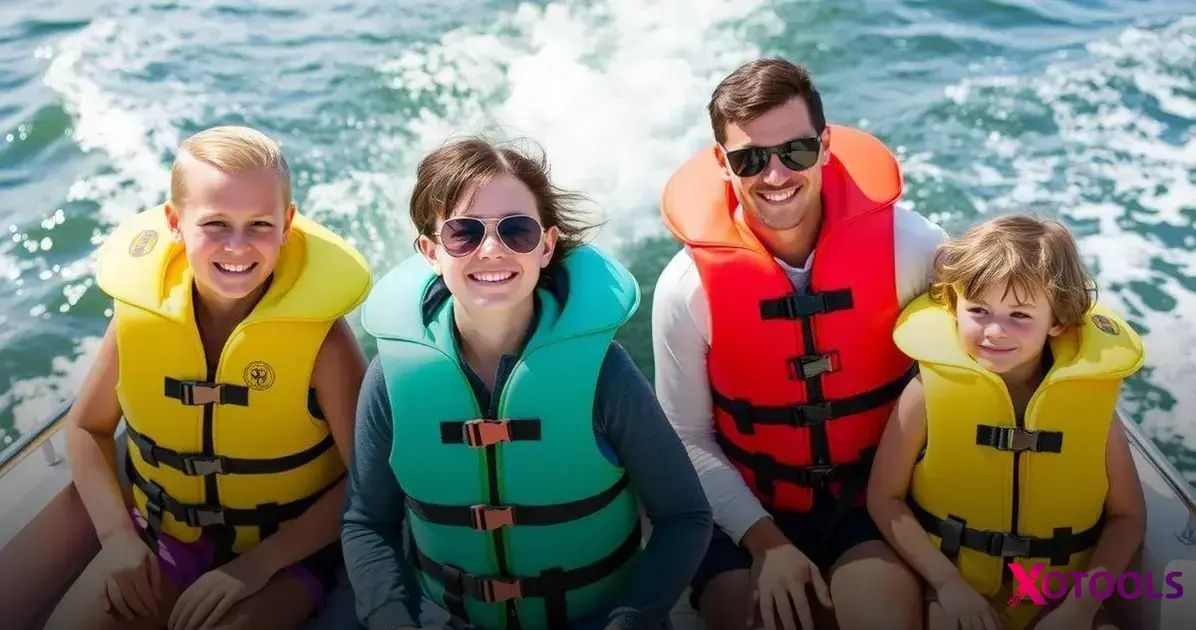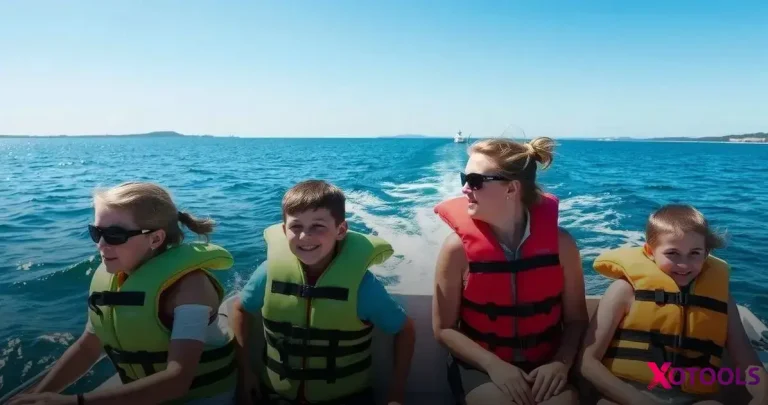ADVERTISEMENT
Boating can be thrilling, but safety should always come first. Knowing top 10 boating safety tips helps everyone enjoy the pleasures of the water.
Accidents can happen quickly, making awareness and preparation essential for all boaters. Safety measures are vital whether you’re a seasoned sailor or a novice.
Taking simple steps can significantly reduce risks and ensure your boating experience is enjoyable. Keep reading to discover the key tips that could save your life!
Essential Boating Safety Gear
When you head out on the water, having the right safety gear is crucial. Items like life jackets, also known as personal flotation devices (PFDs), are among the most important. Everyone on the boat should have one that fits properly, as this can save lives in emergencies.
In addition to life jackets, a well-stocked first aid kit is essential. Accidents can happen, so being prepared with bandages, antiseptic wipes, and other medical supplies can make a difference. Ensure you check your first aid kit before each trip and replace any used items.
Moreover, a fire extinguisher is a must-have for boating safety. It helps to quickly put out fires that can occur on the boat. Make sure the fire extinguisher is easily accessible and regularly checked to guarantee it’s in working order, adding an extra layer of safety to your adventure on the water.
Understanding Weather Conditions
Understanding weather conditions is vital for every boater. Checking the forecast before heading out helps you be prepared for any changes. Look for information about wind speed, storms, and temperature to ensure a safe trip.
Clouds and sudden changes in the wind can be early signs of bad weather. If you notice dark clouds building or hear thunder, it’s time to head back to shore. Always trust your instincts when it comes to weather, as safety should be your top priority.
Additionally, using weather apps and marine radio can keep you informed while on the water. These tools provide real-time updates, helping you make smart decisions. Staying aware of weather conditions can prevent dangerous situations and make your boating experience enjoyable.
Importance of Life Jackets

Life jackets are essential for anyone who spends time on the water. They help keep you afloat and can prevent drowning if an accident occurs. Wearing a life jacket is especially important for children, as they may not be able to swim as well as adults.
Strong currents and sudden falls can happen, even to the most careful boater. A life jacket offers vital support in emergencies. It gives you the chance to stay calm and get back to safety if you fall overboard.
Choosing the right type and size of life jacket is also important. Check that it fits snugly and is free of any tears. Regularly inspect your life jackets to ensure they are in good condition. Wearing a life jacket correctly makes boating much safer and ensures everyone enjoys a fun adventure on the water.
Rules for Boating Alcohol Consumption
When it comes to boating, understanding the rules for alcohol consumption is critical for safety. Just like driving a car, being under the influence of alcohol while boating can lead to accidents. Most states have a blood alcohol content (BAC) limit, and exceeding it can result in fines or even jail time.
Always designate a sober driver for your boat. If you plan to drink, make sure someone else stays sober to operate the boat. This keeps everyone safe and lets you enjoy your time on the water responsibly. It’s important to consider that alcohol can impair your judgment, slowing your reaction times when you’re out on the waves.
Lastly, drink plenty of water and eat before consuming alcohol. This helps keep you hydrated and can reduce the effects of alcohol. The sun and wind can quickly dehydrate you, making it even more dangerous to drink. Following these rules will help ensure that your boating adventure remains fun and safe.
Navigating Open Waters Safely
Navigating open waters requires awareness and skill. Always keep an eye on your surroundings, including other boats, buoys, and any hazards in the water. If you are not familiar with the area, use a nautical chart or a GPS device. This helps you avoid shallow areas and ensures that you stay in safe navigable waters.
Using proper signaling is also crucial for safe navigation. Make sure to use your boat’s lights when traveling at night, and always signal your intentions clearly to others on the water. If you want to change direction or slow down, communicate these actions to avoid accidents.
Lastly, be prepared for changing conditions. Weather can shift quickly, especially on open water. Keep track of the forecast and be ready to adjust your plans if needed. It’s wise to have extra supplies, like water and life jackets, on hand in case you end up out there longer than expected. Staying alert and prepared will make your boating experience safer and more enjoyable.
Emergency Communication and Navigation Tools
Reliable communication tools are essential for staying safe on the water. A VHF marine radio allows you to send distress calls or communicate with nearby boats and the coast guard. Unlike mobile phones, VHF radios are designed for marine environments and often have a longer range.
GPS systems are equally important for safe navigation. They help you track your location, find your way back to shore, and avoid hazards. Many GPS devices now include real-time weather updates and chart plotting, making navigation much easier and safer.
Equipping your boat with proper technology is one of the top 10 boating safety tips you shouldn’t overlook. Having the right tools can make the difference in an emergency, giving you peace of mind every time you head out on the water.
Safe Passenger Practices on Board
Ensuring that all passengers understand boating safety rules can prevent accidents. Before leaving the dock, brief everyone on where life jackets are stored, how to use emergency equipment, and where to sit. Clear communication helps everyone feel confident and secure.
It’s also important to limit movement on the boat while it’s in motion. Passengers should remain seated and hold onto secure parts of the boat. Sudden shifts in weight or unexpected movements can cause imbalance and even lead to falls overboard.
Teaching and following safe passenger practices is one of the top 10 boating safety tips that keeps both crew and guests safe. When everyone knows what to do and follows the rules, your boating trip is much more enjoyable and accident-free.
Regular Maintenance and Pre-Departure Checks
Maintaining your boat regularly ensures it’s always ready for safe use. Check your engine, battery, fuel levels, and lights before each trip. Proper maintenance not only improves performance but also helps avoid mechanical failures in the middle of your journey.
Conducting pre-departure checks is a smart routine. Look for loose fittings, leaks, or any unusual signs. Ensure you have all safety equipment on board and that it’s functioning correctly. These checks only take a few minutes but can prevent serious issues later on.
One of the top 10 boating safety tips is to never skip your pre-trip inspection. A well-maintained boat is safer and more reliable, helping you enjoy the water with confidence and less risk of surprise problems.







